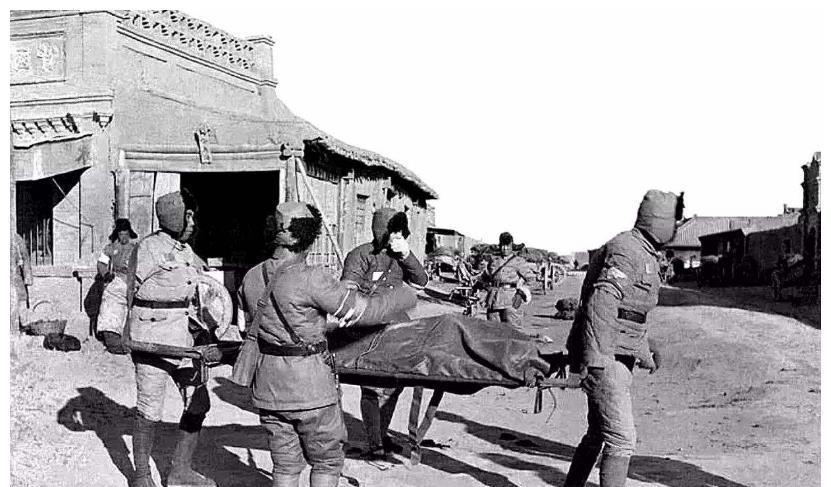No matter what era, war can bring great disasters to both sides, especially for ordinary people. And people's originally peaceful lives will be turned upside down by war, and families will become fragmented. And the country that caused such a catastrophe is the aggressor.
China, which has been at war with the aggressor Japan for more than a decade, suffered heavy casualties in the war, so it also makes us have an indelible emotional hatred for this country, especially those who have personally experienced the war in the older generation, and they hate the Japanese even more.
However, although Chinese is very disgusted with the devils who invaded our country, China has paid attention to repaying grievances with virtue since ancient times, so after the end of the war, although the hatred of the Japanese in the hearts of the people has not disappeared, there will be no idea of revenge. A farmer in Henan used actions to tell people what is called "repaying grievances with virtue." He took in a wounded Japanese soldier, and his father and son took care of him for 47 years.

In the Japanese army, many university students were forced to enlist during the war due to a shortage of soldiers, and Ishida Toshishiro was one of them, who was a student at the Tokyo Agricultural College in Japan. In 1937, he was forced to participate in World War II and came to China, but because he could not stand the cruelty of the Japanese army, he eventually became a deserter. In addition, at that time, Ishida Toshishiro was injured and could not catch up with the large army back to Japan, and was forgotten in China.
At the end of the war, most of the people were still grieving for the relatives and friends who died in the war, so at this time, they were naturally full of hatred for these Japanese who stayed. Ishida, on the other hand, was unable to make a living and ended up wandering to a small village in Henan. This village was relatively poor, coupled with the perennial war, the crops were not growing well, so no one wanted to take out food to pity the Japanese.
Sun Bangjun is a member of this small village. On the way, he met Ishida Higashishiro by chance. Sun Bangjun certainly hated the Japanese, but when he saw Ishida Toshishiro pleading with him in Unintelligible Japanese, he gave him some food.
Sun Bangjun felt that doing so was worthy of his conscience. However, ishida Higashishiro seems to have caught a life-saving straw, and has been following Sun Bangjun to death, although Sun Bangjun did not let Ishida follow him on the way, but he could not get rid of him, so he followed Sun Bangjun's house.
You should know that at that time, Sun Bangjun's family was not rich, and he could only barely maintain it, and now more Ishida can only rely on shrinking clothes and dieting to survive.
Ishida Higashishiro lived here for 47 years, during which Sun Bangjun also raised money to help him see a doctor, and then Ishida Higashishiro did not eat and drink in vain, but helped Sun Bangjun farm and work, and later the Sun family gave him a name, called Li Tong. As for the scolding of others, Li Tong never fought back, did not return his mouth, he was afraid of finding trouble for Sun Bangjun.
After a long time, the Sun family saw that Li Tong was no different from the people, and slowly let down their guard and began to accept him. At that time, although the villagers would sometimes sneer at him twice, they did not say anything about driving people away. After all, human nature is good, and the people in their village don't have too many plans!
In 1964, Sun Bangjun fell terminally ill and died. On the occasion of his death, he told his son Sun Baojie to help Li Tong return to his hometown, and after death, he also had to return to his roots and his soul to his hometown. And Sun Baojie has always remembered his father's words and has always been kind to Ishida.
After the normalization of diplomatic relations between China and Japan in Japan, Li Tong's heart for homesickness also became heavier and heavier, and he began to speak less. In 1992, when the Japanese delegation was passing through Nanyang, Sun Baojie took Li Tong to meet the delegation. Coincidentally, there was one of his comrades-in-arms in the regiment, Tsuda, and the two of them cried with headaches.
After that, Li Tong and Sun Baojie hugged and said goodbye in tears. Li Tong returned to his homeland after 47 years and found his family. He also publicized his 47-year-old rescue by Chinese in All walks of life in Japan and called for peace.
After this, Sun Baojie and Li Tong did not break off contact. Li Tong then invited Sun Baojie's family to Japan as a guest, and in order to express their gratitude, three generations of Sun Baojie's family took care of Li Tong and put together nearly 150,000 yuan, which was a considerable amount in China at that time. However, Sun Baojie immediately refused at that time: "I think my father did not save you for money at that time, nor did I." Life has no borders, I only wish peace between China and Japan, and there will be no more war! After saying that, Li Tong's family left tears of feeling.
Sun Bangjun's family complained with virtue, and in the social environment at that time, taking in a Wounded Japanese soldier was under extremely great psychological pressure. Finally, the three generations of their family's care for Japanese soldiers for nearly half a century were widely spread in China and Japan!
References: Tombstone of the Living, Wounded Soldier Higashishiro